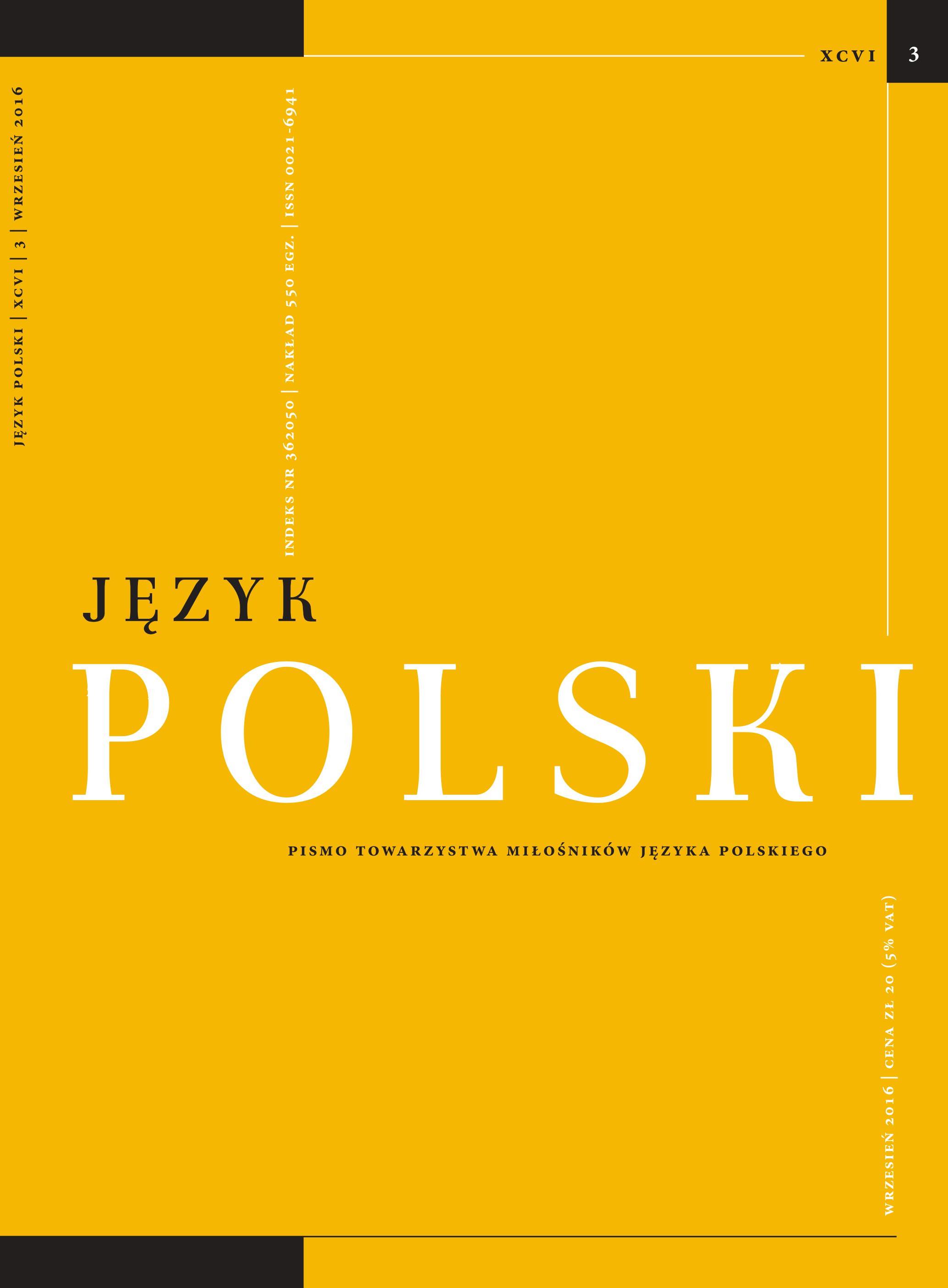Gbury, dziwki, patole, zwyrole i ćwoki – o szczególnej karierze quasi-gwarowych ekspresywizmów w polszczyźnie
Gbury, dziwki, patole, zwyrole i ćwoki (‘kerns’, ‘wenches’, ‘lowlives’ & ‘nobs’) – about successful career of some quasi-vernacular Polish expressivisms
Author(s): Kazimierz SikoraSubject(s): Language studies, Language and Literature Studies, Applied Linguistics, Sociolinguistics
Published by: Towarzystwo Miłośników Języka Polskiego
Keywords: expressive lexis; colloquial Polish language; verbal aggression; history of language
Summary/Abstract: The article investigates the provenance of a distinctive group of Polish expressive lexemes connected with the countryside and its vernacular. All of them are featured by emotionally marked words expressing i.e. contempt, disregard, pity. This negative meanings did not use to exist within the vernacular, i.e. gbur (‘kern’), kmiot/kmieć (‘yokel’), bamber ('homesteader'), wieśniak (‘yahoo’/’redneck’), dziewka (‘wench’ – transformed in Polish into ‘bitch’); similarly – some expressive units with suffixes: -ol, -ok, -orz. Contemporarily, by contrast, they serve as a means of linguistic aggression, being used to insult and depreciate recipients. According to the author, such change may be incentivised by rural tone of these words and derivational suffixes, and intensified with negative connotations of the countryside. As proven in the article, this phenomenon is not new in the Polish language. It is the result of many centuries of deprivation of the Polish countryside and its peasantry and, thereby, the existence of multifold negative stereotypes about this social environment.
Journal: Język Polski
- Issue Year: 2016
- Issue No: 3
- Page Range: 58-67
- Page Count: 10
- Language: Polish

